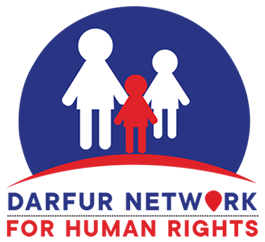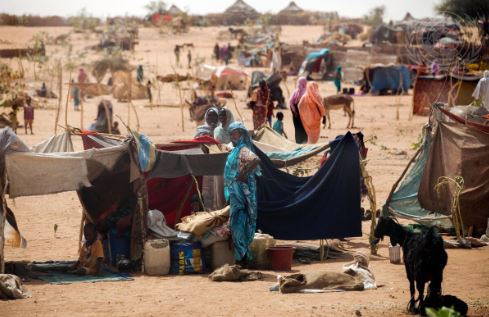March 2025 – El Fasher, Sudan – Once a place of refuge for 500,000 displaced people, Zamzam Camp is now a battleground where starvation is being used as a weapon of war.
In the past month, the World Food Programme (WFP) and Médecins Sans Frontières (MSF) were forced to halt operations due to intensified fighting. The USAID-funded emergency kitchens that once provided critical meals have also shut down following aid cuts, leaving thousands without food or medical care. This isn’t just a failure of humanitarian access—it is a deliberate strategy of war, designed to starve, weaken, and ultimately destroy Sudanese civilians.
The Siege of Zamzam: Starvation as a Weapon of War
For nine months, the Rapid Support Forces (RSF) have maintained a brutal siege on El Fasher, Darfur’s last Sudanese Armed Forces (SAF) stronghold. In their campaign to seize control, RSF forces have choked off supply routes, bombed marketplaces, and blocked humanitarian aid—leaving civilians trapped in a city without food, water, or medical support.
Zamzam Camp, located just outside El Fasher, is one of the worst-hit areas. Once dependent on food assistance from WFP and emergency kitchens supported by USAID, it now has no functioning aid programs left. The destruction of markets in Zamzam and Abu Shouk IDP camp means that even those with money cannot buy food.
The situation has spiralled into a full-scale famine. Food prices have skyrocketed beyond what civilians can afford:
- A 25kg sack of lentils has risen from 140,000 SDG to 160,000 SDG.
- A 50kg sack of sugar now costs 310,000 SDG, up from 280,000 SDG.
- A barrel of water costs 5,000 SDG, making survival increasingly impossible.
This is not an unfortunate consequence of war—it is a calculated siege tactic, designed to starve civilians into submission.
The Human Cost: What Happens When Aid Disappears?
The suspension of humanitarian aid has left 500,000 people in Zamzam completely defenceless.
- Starvation is setting in. The closure of USAID-funded community kitchens, combined with the withdrawal of WFP food assistance, means entire families are going without meals for days.
- Medical care is gone. MSF’s field hospital, which treated 139 patients in February alone, is now closed. Eleven people, including five children, died because they could not be transferred to a surgical facility. Pregnant women needing C-sections are now left to die from preventable complications.
- Water is no longer accessible. With no functioning aid systems, families are forced to pay black market prices for something as basic as drinking water.
These are not side effects of conflict—they are the direct result of war tactics meant to break the population.
While Civilians Starve, RSF Leaders Gather in Nairobi
Even as people in Zamzam face starvation, RSF leaders and their allies were in Nairobi signing a political charter for a parallel government on February 23.
This charter claims to prioritize peace, protect civilians, and ensure humanitarian access—yet on the ground, the RSF is doing the exact opposite. They bombed the very markets where food aid was being distributed, blocked humanitarian convoys, and forced aid agencies to withdraw.
The reality is clear: This is not about governance or peace—it is about control through destruction.
Urgent Calls for Action
The Darfur Network for Human Rights (DNHR) strongly condemns the use of starvation as a weapon of war and calls for immediate intervention before Zamzam Camp becomes a mass grave.
We demand:
- An immediate end to the siege of El Fasher and Zamzam Camp to allow food and medical aid to reach civilians.
- The UN, African Union, and global leaders to pressure warring factions to allow humanitarian assistance.
- Enforceable humanitarian corridors to ensure WFP, MSF, and other aid organizations can resume operations without fear of attack.
- Accountability for those responsible for weaponizing starvation, in accordance with international humanitarian law.
Every day of inaction is another day thousands of lives are lost to starvation, thirst, and untreated injuries. Sudanese civilians have been abandoned long enough. The world must not wait until Zamzam is wiped off the map to respond.
The time to act is now.

